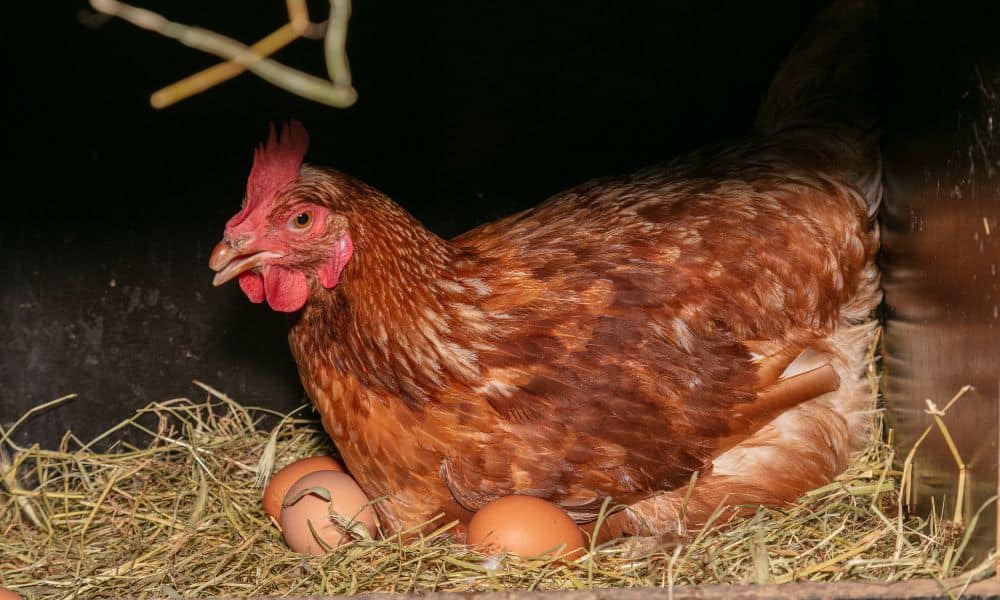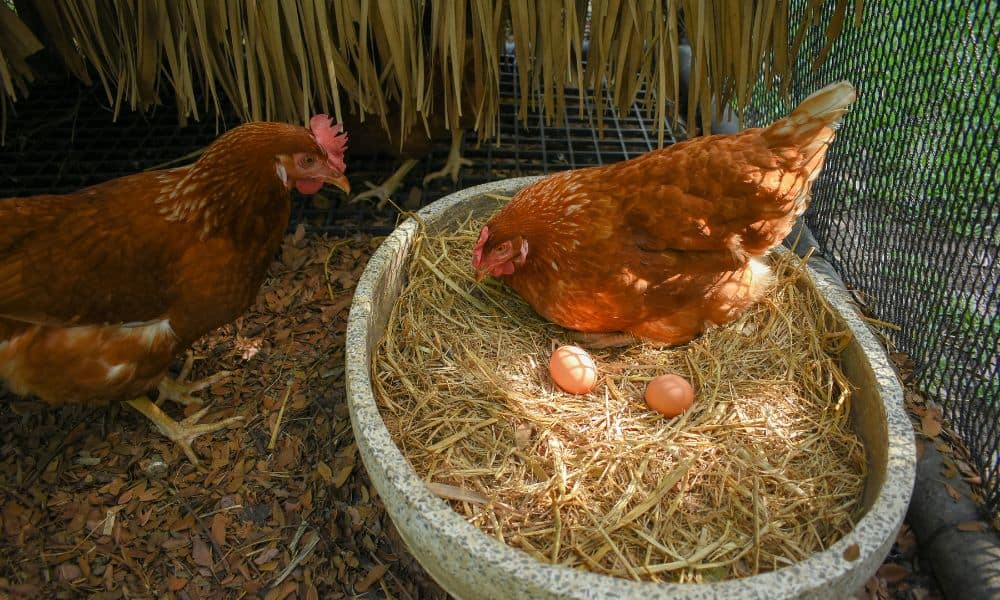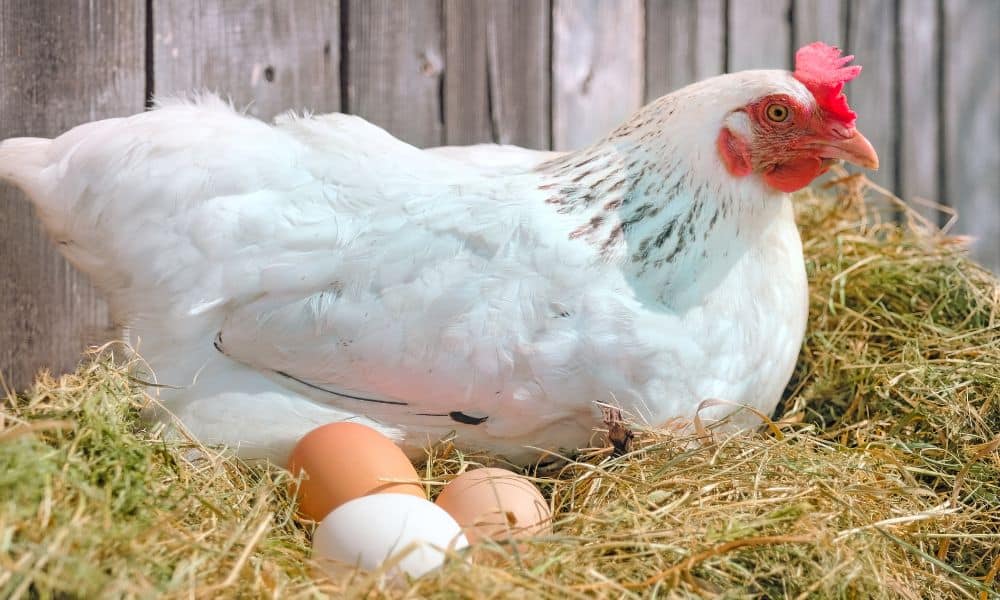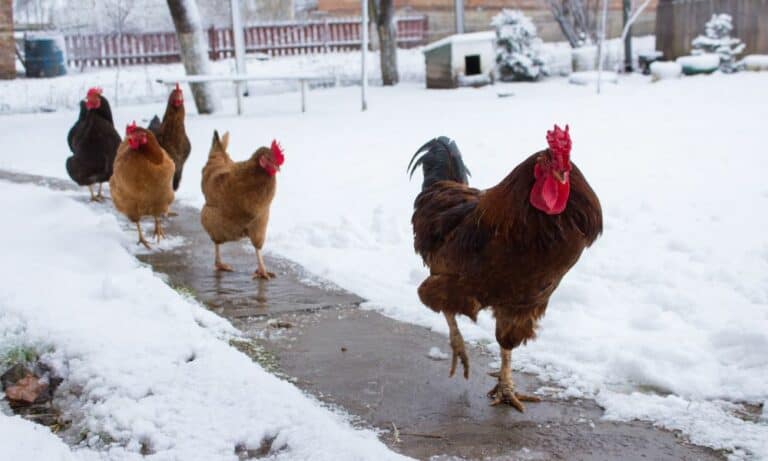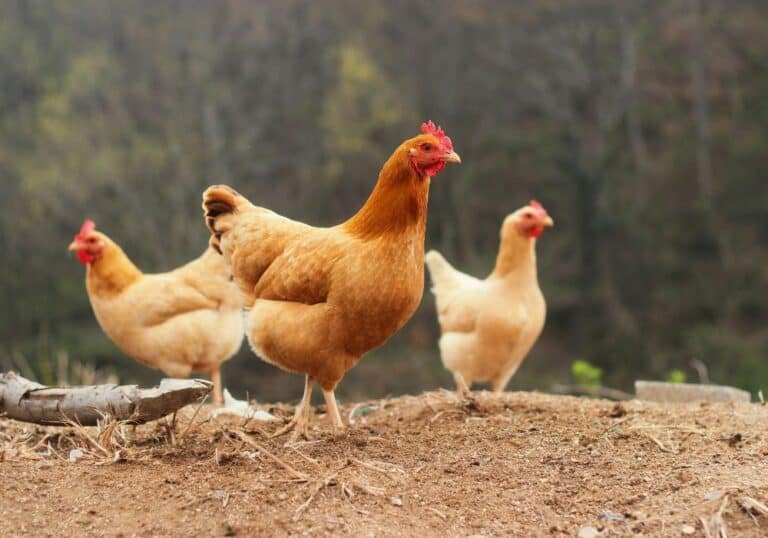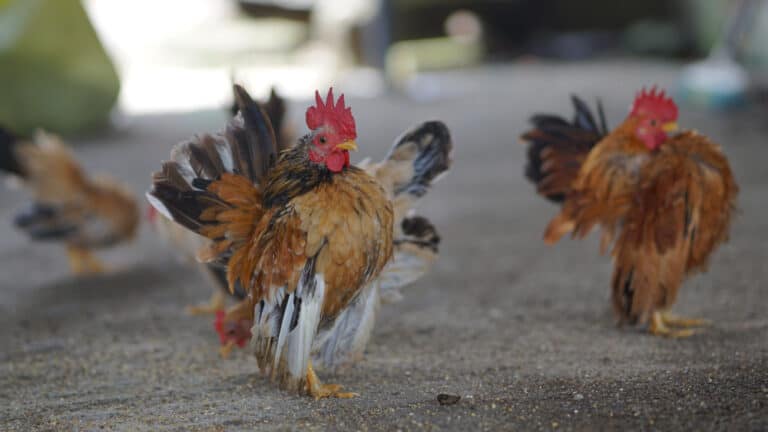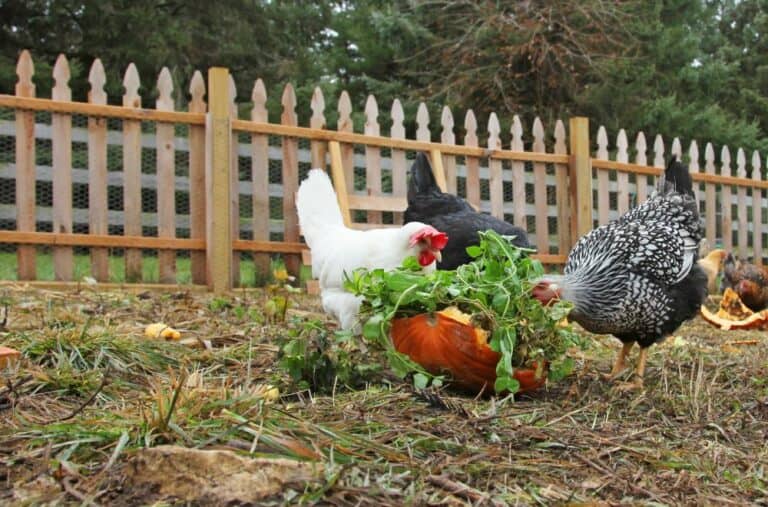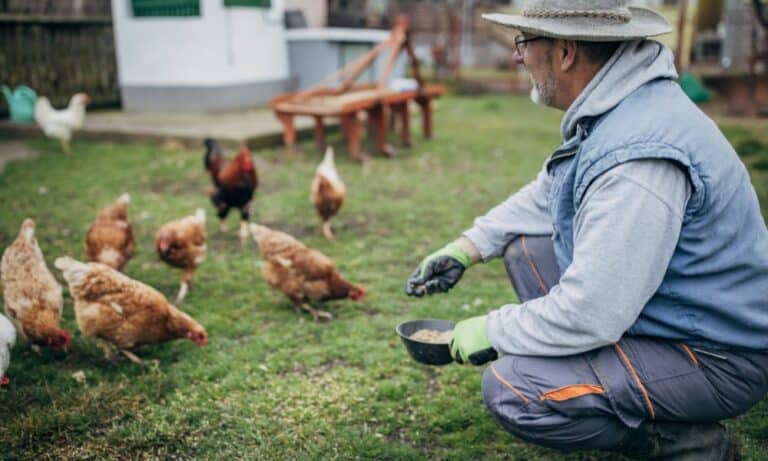One of the most intriguing questions about poultry is – Does it hurt chickens to lay eggs? That dilemma has existed for a long since an average hen lays over 250 eggs annually or 3 to 5 eggs weekly. However, it seems that there is no need to worry.
Most hens probably don’t feel pain during egg laying, but it can be a painful experience for young chickens and those laying too sizable eggs. In such cases, you can notice slight bleeding from the vent and hear gasping and wheezing while the egg comes out.
Does It Hurt a Chicken to Lay an Egg?
Honestly, no one can guarantee whether hens feel pain while laying eggs. Scientists suppose young ones may suffer discomfort when laying their first egg, but who knows? In normal circumstances, there are no signs they are in pain, particularly not like women during labor.
The probable reason is the physiology of their reproductive tract, particularly an oviduct designed for egg moving without causing damage. Egg passing from the ovary to the vent through the oviduct typically takes 26 hours, thanks to wall muscles contractions pushing it along.
As long as your hen acts as usual, it is OK. You should start to worry when it stops drinking and eating and spend time isolated and without activity. If you see it being proud and happy because one more egg appears, you can be sure it doesn’t suffer from pain.
On the other hand, ceasing to lay eggs is always a sign that something is wrong. Overcrowding, exposure to light of fewer than 17 hours per day, coldness, constant noise, poor ventilation, inadequate diet, and illness always lead to problems with egg production.
Factors That Affect the Pain Degree During Egg Laying
You should consider two factors to be sure your chickens don’t feel pain while laying eggs. If your chickens are young but of the breeds producing large or extra-large eggs, you should pay attention and help them if they get stuck.
Also, look carefully at each egg and be alert when noticing belted eggs occur. It is a sign of a broken eggshell inside the hen and the imperfect repairing before laying. You shouldn’t use such eggs for chick hatchlings since they have too low air and moisture transfer possibilities.
Finally, any changes in the hen’s Egg Song are a warning that something has gone wrong. You should help your chickens to reduce pain when possible. The first step is to change their diet and increase vitamin and mineral levels.
1. Hen age
Unfortunately, laying the first egg often causes pain and can be an uncomfortable or even traumatic experience for young hens. Therefore, they make a wheezy sound and gasp before pushing the egg out and can even squeak the moment when it comes out.
You can sometimes notice a few blood drops on the shell surface when the hen produces its first egg, but it is a rare case afterward. When the chicken is young, and the first egg is too sizable, sometimes blood may appear in its feces later in the day. There is nothing to worry about unless it repeats in the next few days.
As hens lay more eggs, their vents stretch out, muscles strengthen, and pelvic bones become properly aligned, making laying eggs more comfortable and less painful. Therefore, you can notice them hopping from the nest box immediately after finishing to continue with other activities.
On the other hand, you should pay attention to older hens that start showing pain while laying eggs. It can indicate illness, weaker muscles, or tired joints enduring increased strain.
2. Egg size
Sizable eggs may cause pain while laying, particularly in young hens. Some can produce double-yolk eggs when two yolks come from the ovary simultaneously and end up in the same shell. Such eggs are typically giant and probably cause pain in hens while lying.
On the other hand, it is impossible to find relevant scientific studies about pain in egg-laying hens. Only common sense says that the disproportion between the hen’s size and the egg it produces probably leads to increased distress during egg lying.
The problem occurs when a tiny hen tries to lay a too big egg for its dimensions. If it becomes impossible to push it out comfortably, such an egg may get stuck. You can expect the hen with a bound egg to die without help.
Possible Issues That Cause Pain In Hens Laying Eggs
You can notice several possible issues in hens connected with laying. Most are painful, and you should take them seriously. All these conditions are fatal without urgent medical help.
1. Egg binding
Sometimes eggs get stuck in a hen’s oviduct. It probably happens when eggs are too sizable or due to calcium deficiency in feed offered to lay hens. This mineral strengthens eggshells and allows muscle contraction necessary for pushing eggs out.
An additional issue is continued egg production that keeps going undisturbed regardless of a stuck egg. Since the pressure on the bound egg increases, your hen keeps feeling increased pain. The initial pressure stops regular blood flow, causing tissue infection and necrosis.
The bound egg is always a lethal condition without timely help. You can recognize it based on strange hen behavior. It looks like it is uncomfortable, refuses to eat, and takes a penguin-type body position. As soon as you notice the problem, ask your vet for help.
2. Broken egg inside the hen’s body
An egg breaking inside the chicken body may lacerate tissue and surrounding organs, causing painful death. Such a case occurs when the hen’s feed lacks calcium, and the eggshell is too thin and weak to withstand the increased pressure during laying. Call your vet as soon as you discover this problem.
Ways to Make Egg-Laying as Pleasant as Possible
The best thing to do to make laying eggs more comfortable for your hens is to provide nutritious feed, a peaceful and quiet environment while laying eggs, and a comfy laying box.
1. Daily care
Provide a nutritious diet for your hens and free access to water throughout the day. Collect eggs at least twice a day to make additional space for other hens. In ideal circumstances, you can let hens out from the coop in the morning to roam freely until dusk.
2. Diet
Hens require a balanced feed packed with vitamins, minerals, and adequate protein percentage. Provide regular access to grit and crushed eggshells or oyster shells as excellent calcium sources.
One healthy laying hen weighing approximately 6 pounds (2.72 kg) can consume 3 pounds (1.35 kg) of feed weekly. This amount varies depending on the season since chickens reduce food intake in the summer and increase it during winter.
3. Coop
Chickens need a coop to spend nights inside and feel protected and safe. Always elevate their housing and let them perch.
Modern enclosures are well-ventilated and adequately insulated to provide warmth during winter and a cool environment in summer. If you keep hens inside throughout the day, installing quality lighting for approximately 17 hours a day is necessary.
4. Comfortable laying boxes
Depending on each hen breed’s needs, you should place laying boxes at an appropriate height. Add aspen pads, hay, or freshly chopped straw on the bottom to make the bedding pleasant for laying eggs and keep it clean. Some chickens also appreciate nesting curtains that provide desirable darkness and privacy.
5. Sanitation
Maintain the coop regularly and keep the waterers and feeders clean. It is the most efficient way to keep your chickens healthy. Schedule professional sanitation once a year and replace broken coop parts when necessary.
The Egg Song
Every chicken owner knows the sound of the Egg Song. Some are concerned it is a sign of pain while hens lay eggs, but this loud screeching noise appears after the process is finished. Experts believe there are a few explanations for this specific behavior.
Chickens living in the wild release loud sounds when they want to announce their location to other flock members. It is also a way for a hen to signal others about the nest location since most species tend to lay eggs in the same places.
Finally, cackling is probably their way to distract potential predators and distance them from precious eggs and hens that still lay. Domesticated hens’ cackling is a common way to express their pride and relief after laying eggs and encourage roosters to mate.
You can add some other convincing reasons for this phenomenon, but the truth is that no one can determine the exact motive for such behavior. Remember that cackling and squawking are different things. Screaming during egg laying is a sign of pain and requires your attention.
Summary
Laying eggs is not a painful experience for healthy chickens in ordinary circumstances. It can be slightly unpleasant when hens are young or the eggs are too-sizable, but proper care makes the entire process comfortable. You can hear their Egg Song in the morning, but it is not a sign of pain but their nature.

